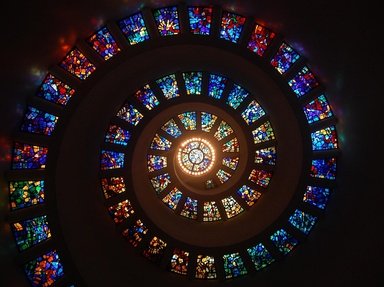Quiz Answer Key and Fun Facts
1. Within Buddhism doctrines, which state, also known as 'enlightenment', is considered to be the freedom from worldly concerns and from existence itself?
2. When Hindus celebrate Diwali, the festival of lights, they try to bring wealth and good fortune to their land. They believe that more lights there are, the more likely the goddess of wealth and good fortune will visit. What is the name of this generous goddess?
3. Which of these primordial Biblical locations, also written about in John Milton's 'Paradise Lost', was depicted as a bounteous land, housing the first humans and introducing the concept of sin?
4. It is arguable that within Sikhism, there isn't a physical bounteous land. In fact, Sikhs would suggest that seeking such a place would lead away from true bliss. What is the name given to the delusion that the pursuit of transient, worldly possessions is worthwhile?
5. Our next stop is often considered to be the second holiest site in Islam, perhaps due to its key relationship with the Prophet Muhammad. Its full name translated from Arabic would mean "City of the Prophet", and it can be found in Western Saudi Arabia. What is the name of this sanctuary?
6. One of Jainism's beliefs is that the 'triple gems' of Jainism constitute the path to liberating the soul, rather than representing any material object. Which of these is NOT one of the three gems required to attain liberation?
7. According to Hinduism, we are not bound by fate; if we want the good life, we must sow goodness and our actions will return favour to us in the future. However, if we sow evil, we will also reap evil. What is the name given to this concept?
8. Those who believe in Shinto believe that nature itself is filled with abundance, but that we must tend to the spirits within, in tall mountains, flowing waterfalls and such. This will also have positive effects for those who do so. What are the name given to these spirits?
9. Which of these younger and less well-known religions, founded in 1863 in Iran, preaches unity across humankind - that we should all settle our racial, religious and personal differences - as part of improving our individual happiness?
10. The 'land flowing with milk and honey' was originally spoken of in the Bible. Which of these is an alternative name given to these lands, on the basis of them being supposedly given by oath to the descendants of Abraham, Isaac and Jacob?
Source: Author
malik24
This quiz was reviewed by FunTrivia editor
CellarDoor before going online.
Any errors found in FunTrivia content are routinely corrected through our feedback system.
